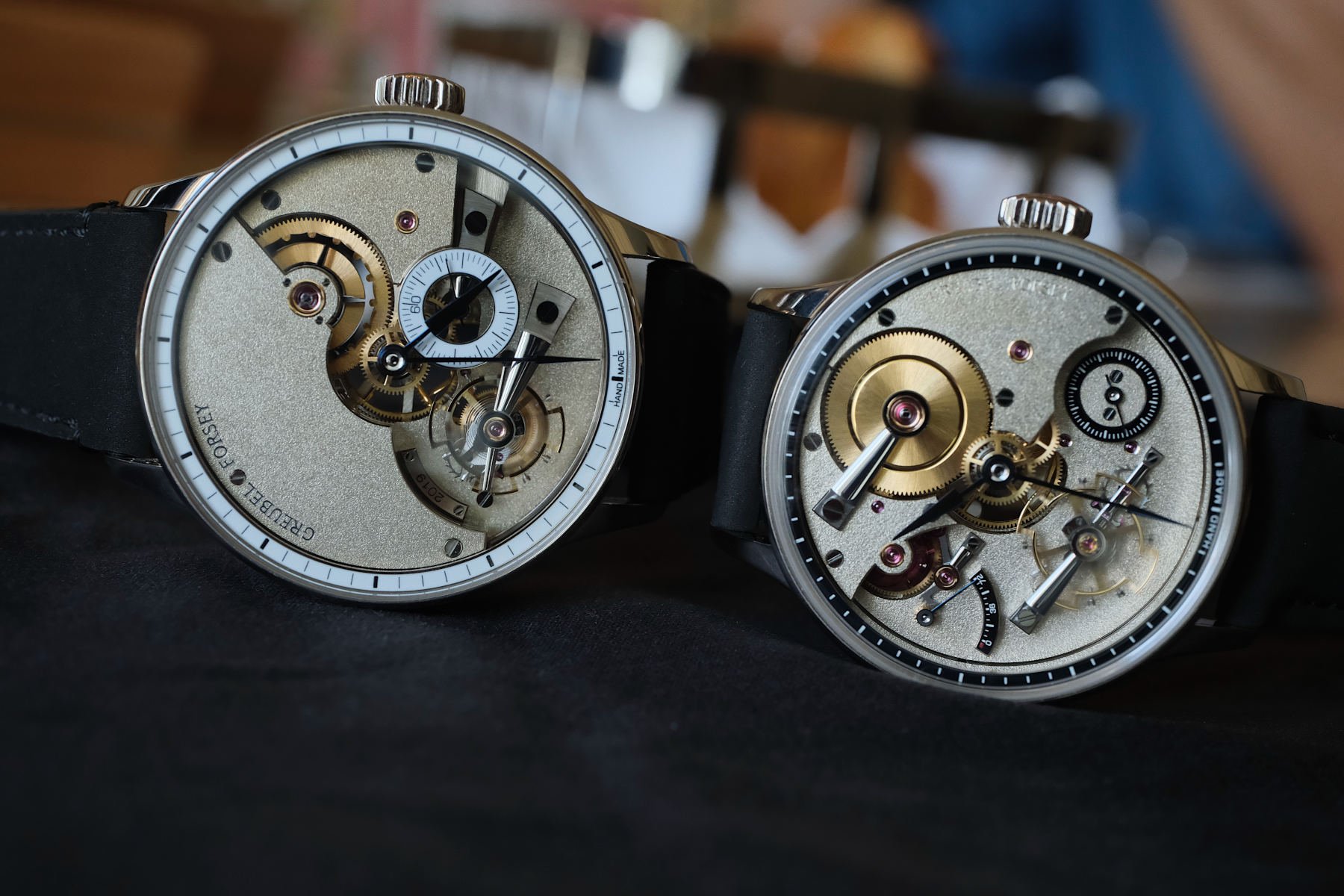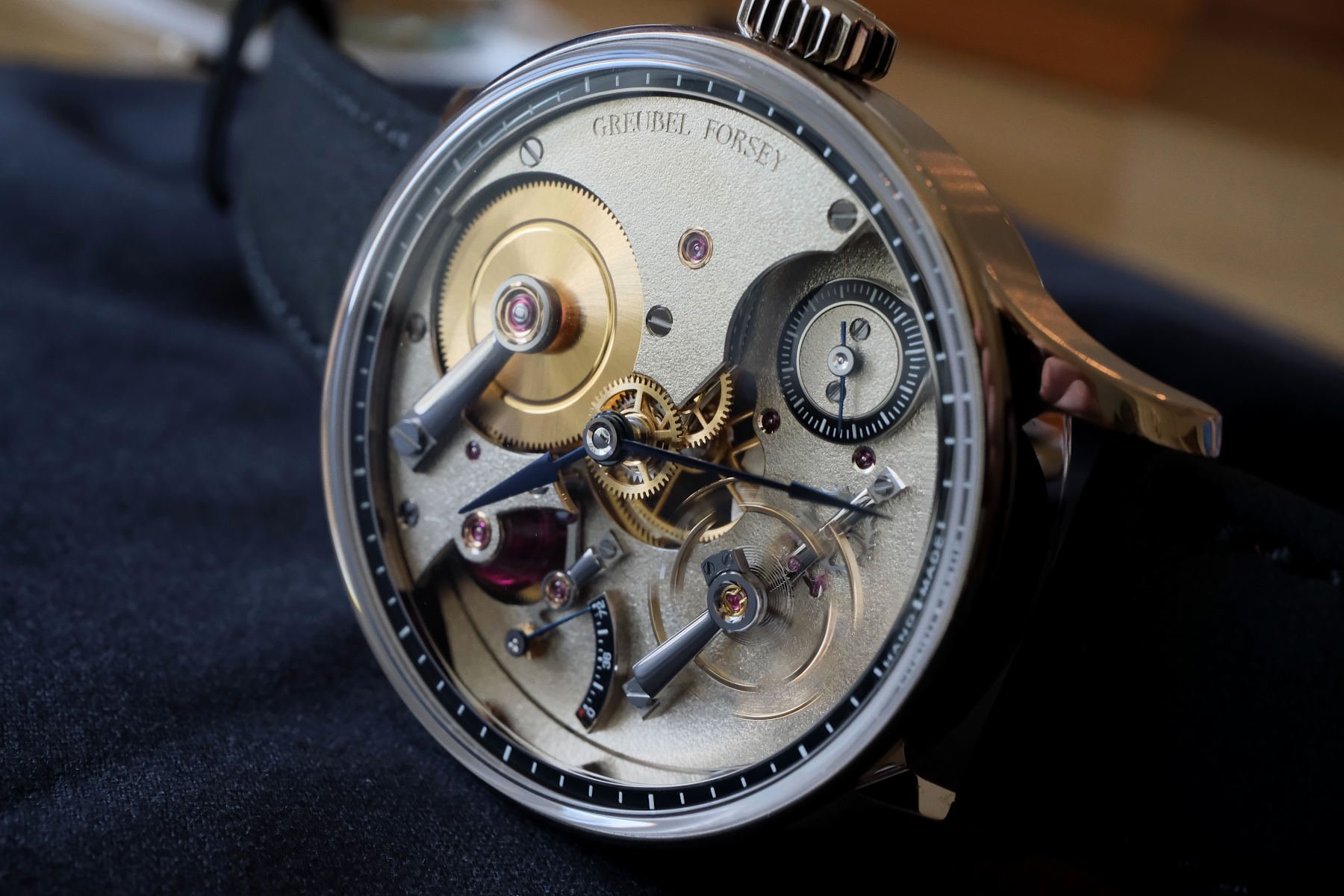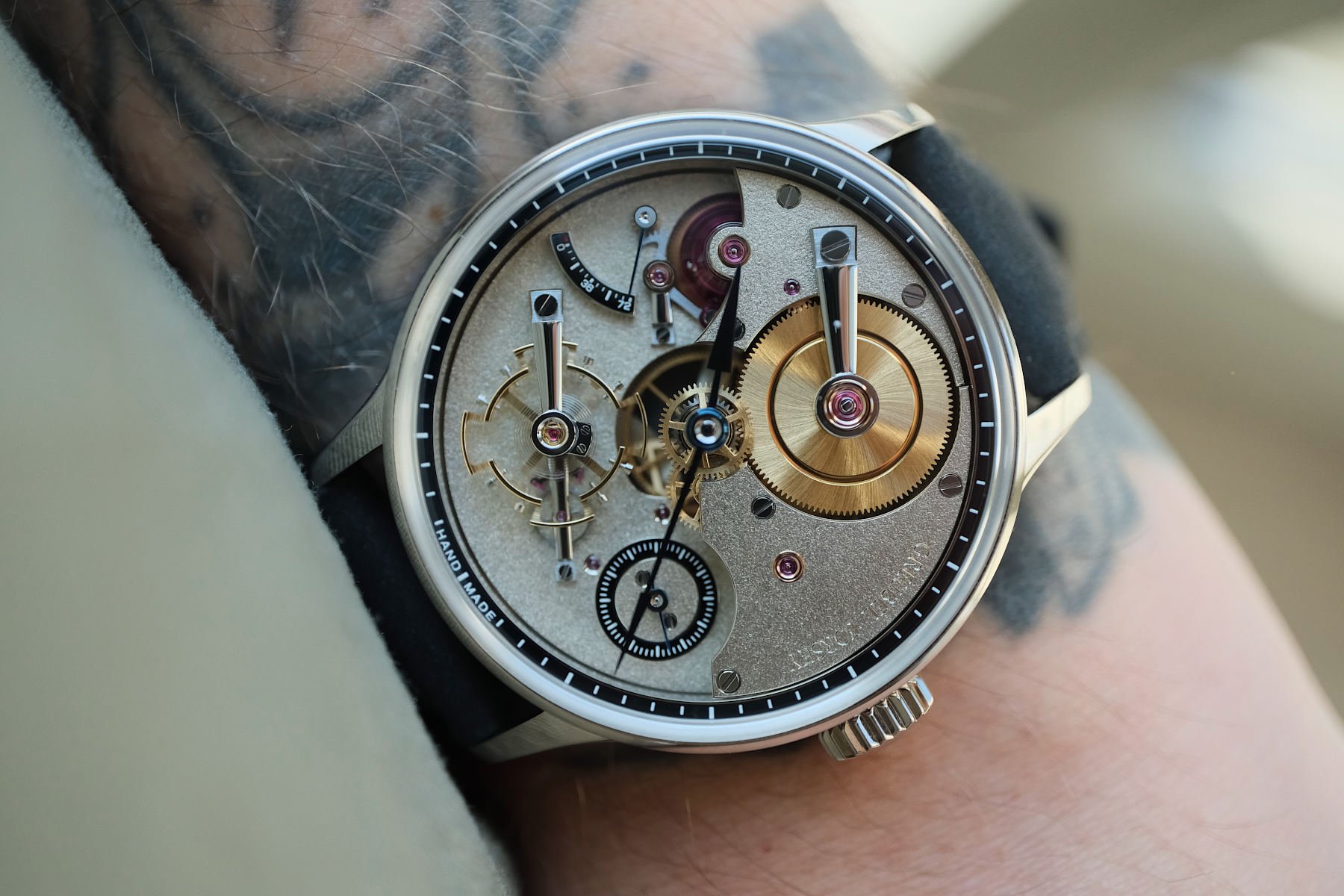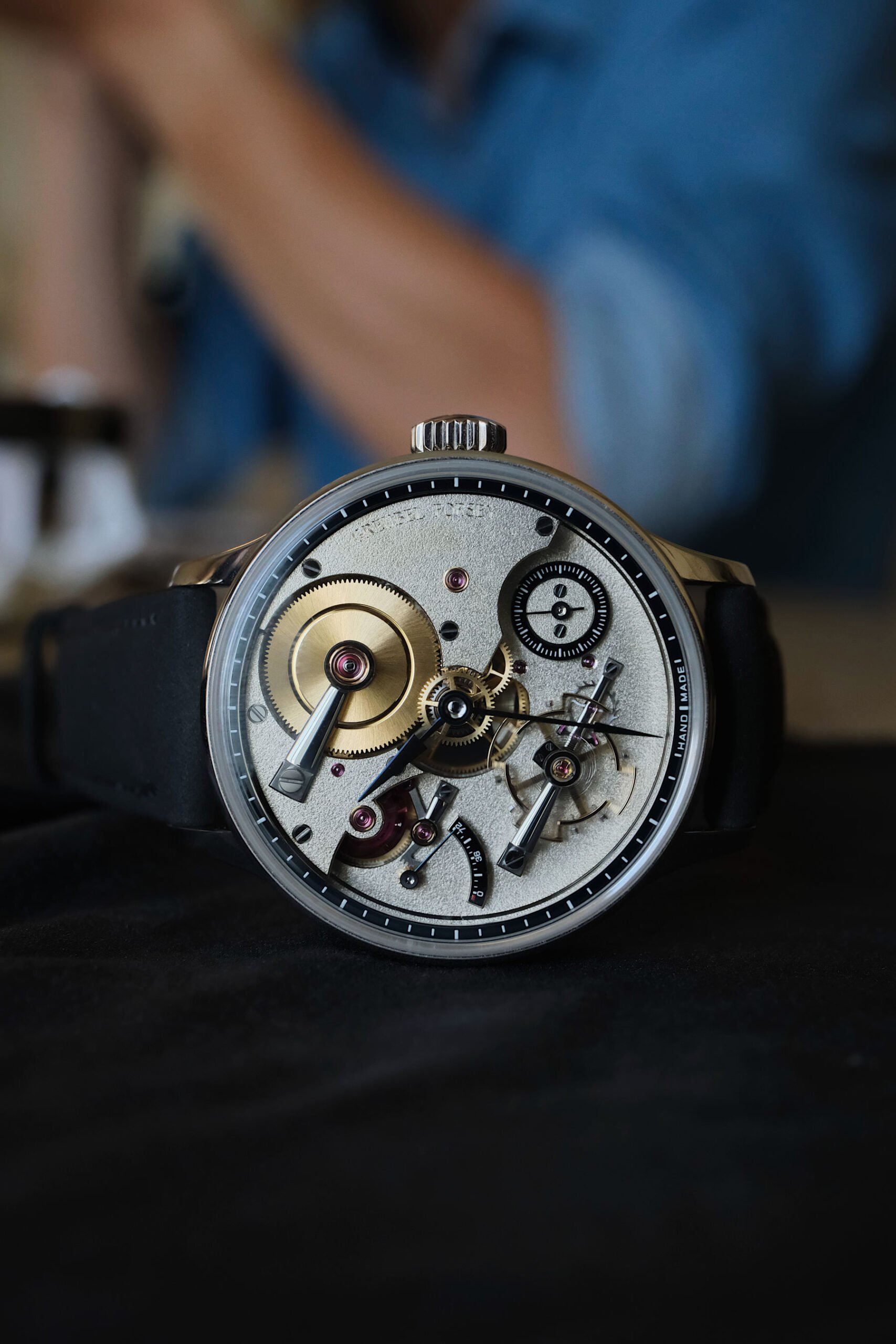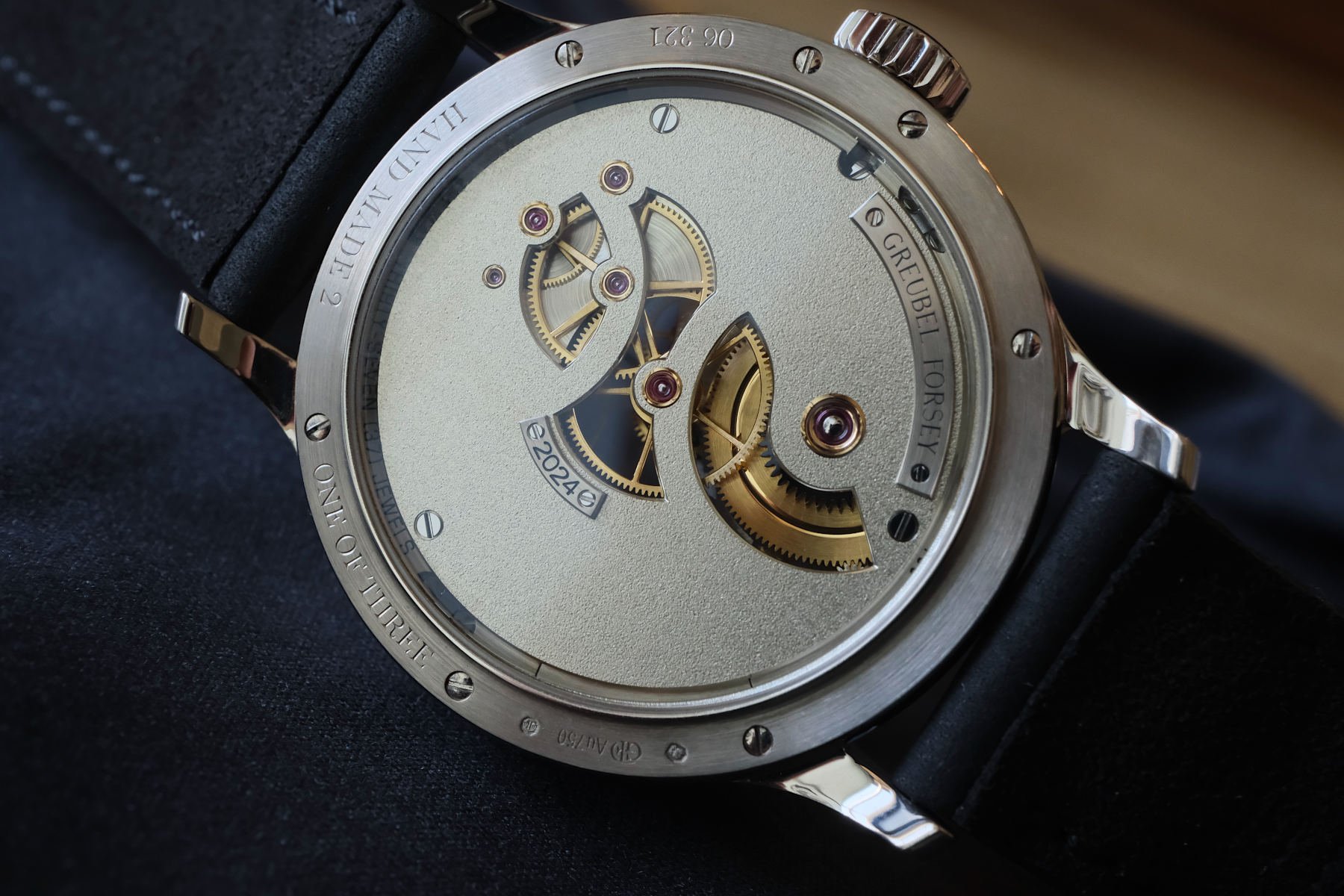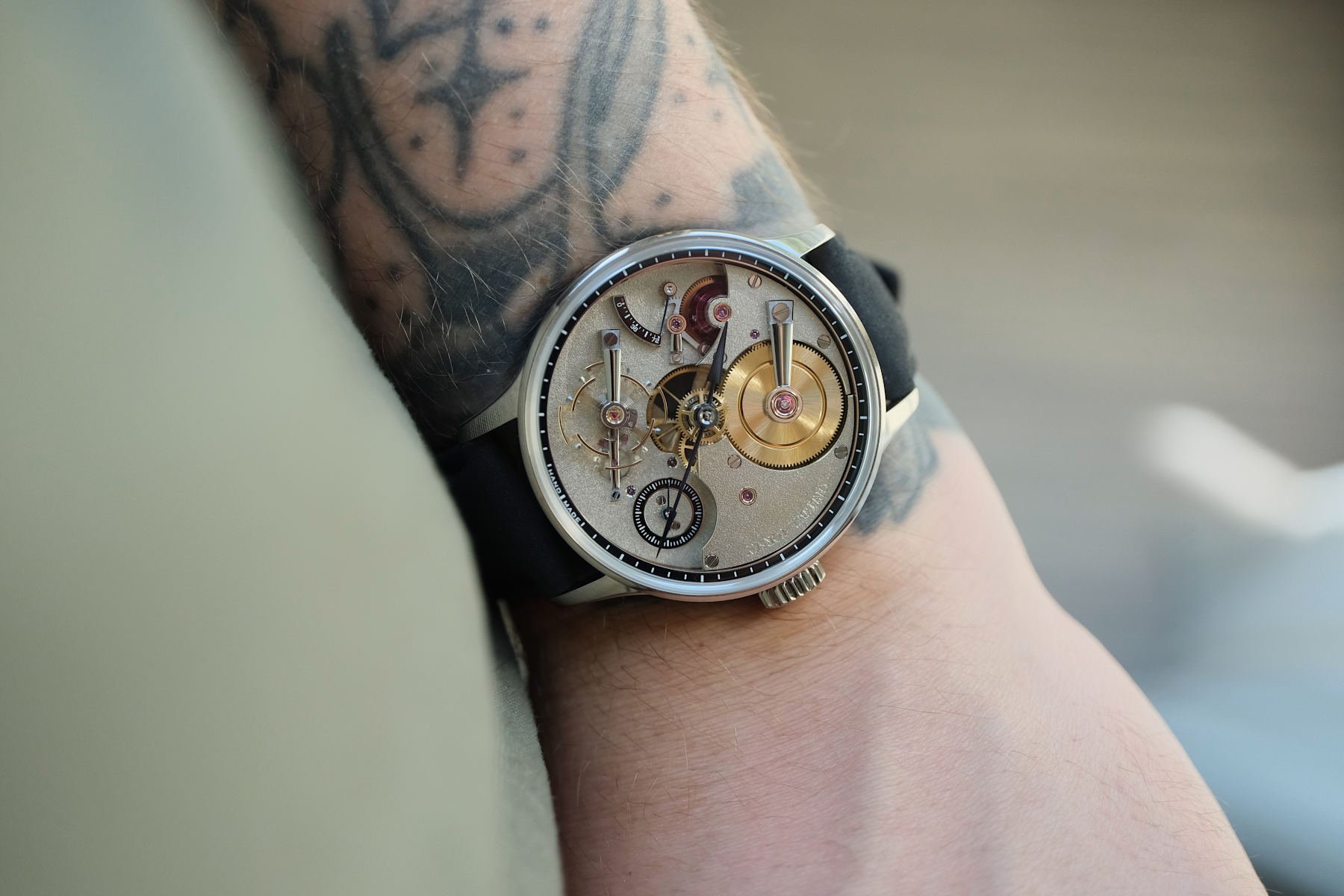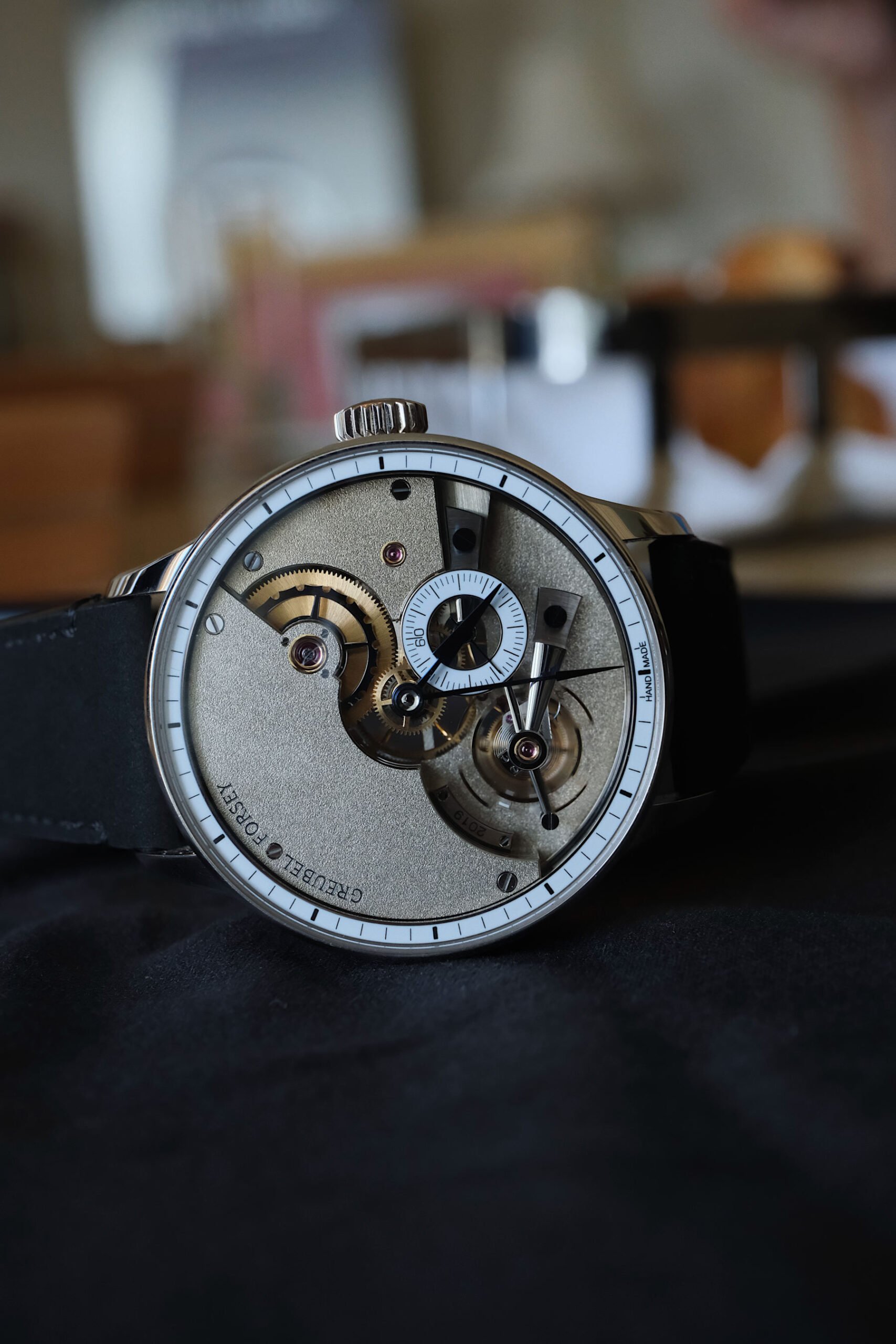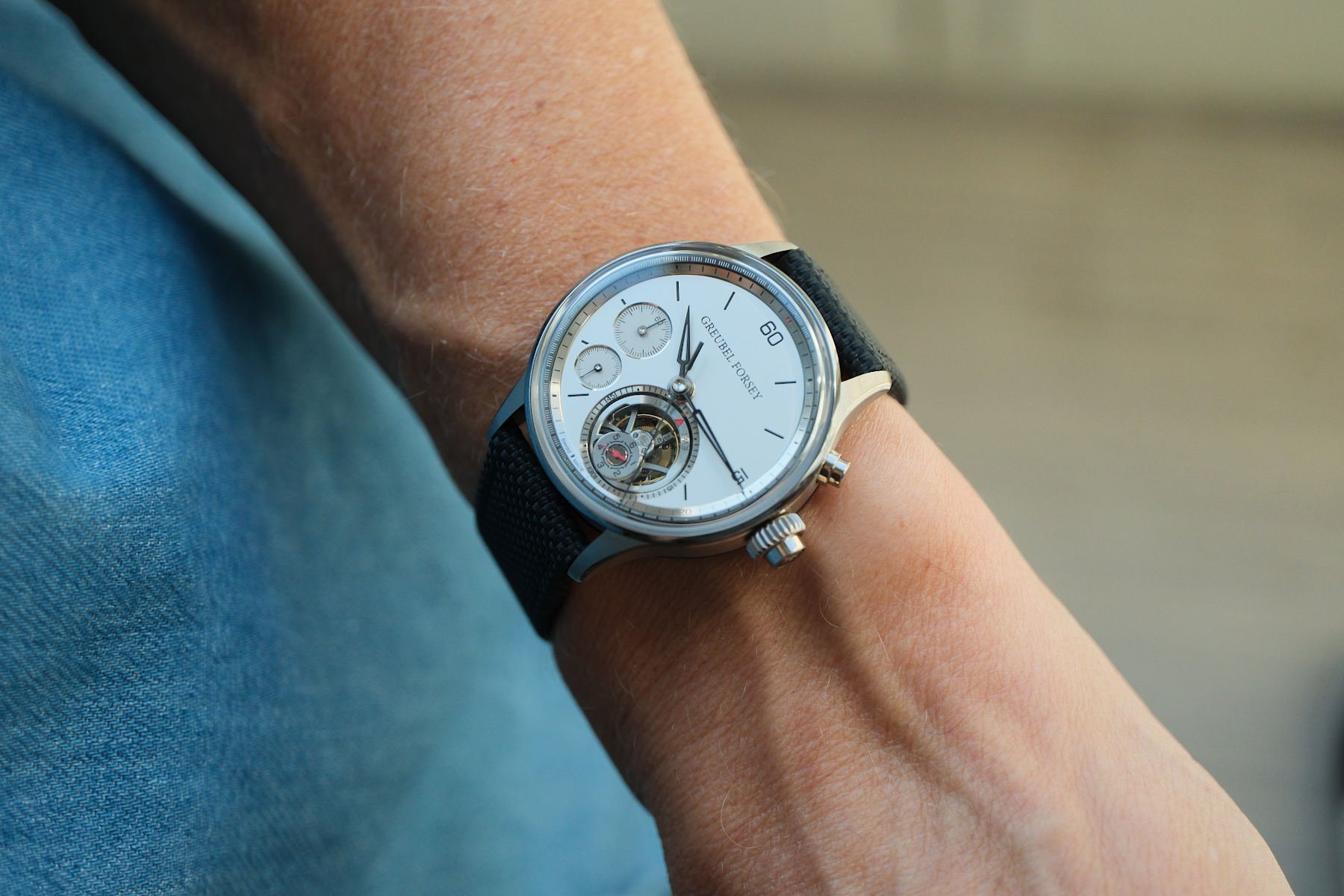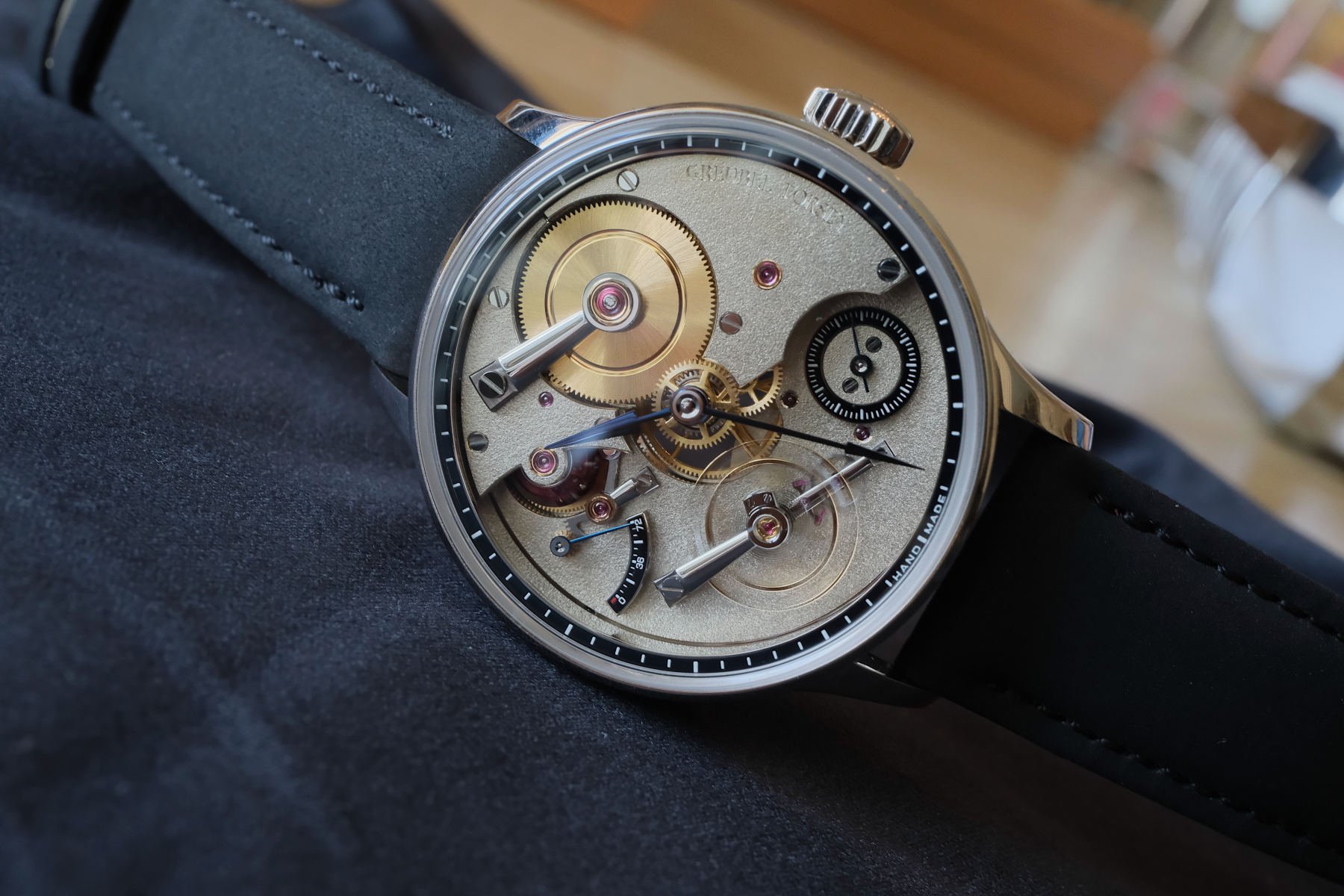Numbers Simply Don’t Do The Greubel Forsey Hand Made 2 Justice
Listen, marginal gains matter in the world of high watchmaking. That’s why the Greubel Forsey Hand Made 2 is better than the Hand Made 1. Greubel Forsey set out to create a watch 100% made by hand, and with the Hand Made 1, the brand almost reached its goal. That extraordinary watch from 2019 was 95% made by hand. Six years later, the Hand Made 2 does better than its predecessor with 96%. A 1% difference might not be much, but as I said, the little things matter, and numbers don’t lie. But can they tell a story about beauty, expertise, ambition, innovation, and passion? That’s why solely talking about numbers doesn’t do the Greubel Forsey Hand Made 2 justice.
The 2019 Greubel Forsey Hand Made 1 consists of 308 parts — 272 movement components inside a 36-part white gold case — and takes 6,000 man-hours to construct using either handheld or manually powered tools. The new Hand Made 2 requires over 5,000 man-hours to build. If you take a 40-hour workweek, that number equals 125 weeks, around 29 months, or almost two-and-a-half years of working only on that watch. Dazzling numbers. The 270-part Hand Made 2 requires 1,000 hours less, equaling 25 weeks, or close to six months. But it still takes two years to build a Hand Made 2, and that’s a dazzling number.
Now for the numbers that make the percentages. The 95% of handmade parts in the Hand Made 1 outfitted with a tourbillon represent 324 components, and the 96% of the non-tourbillon Hand Made 2 equals 259 parts. That is reflected in the price. The Hand Made 1 costs around CHF 800,000, and the Hand Made 2 sells for CHF 620,000. What do these numbers mean? Nothing.
Talking about numbers doesn’t do the Greubel Forsey Hand Made 2 justice, but it’s so tempting to do
Seeing the Hand Made 2 as an object becomes harder if you just focus on the numbers. If something takes 5,000 hours to build, how can you comment on the dimensions of the sub-seconds register, for instance? What would be your opinion of the Greubel Forsey Hand Made 2 if you knew nothing about it and it was presented to you without any explanation? A seasoned watch enthusiast would have the advantage of knowing the brand and what it stands for and picking out some unusual and special features. A watch novice would have more trouble positioning the watch — quite a few watches of different price levels display a movement openly on the dial side. But I guess that the name-giving aspect of the watch would be lost on both watch veterans and novices, although the text at 6 o’clock does give a strong hint.
Then again, I guess many people believe that all Haute Horlogerie creations are handmade, although that is certainly not the case. “Finished by hand” and “made by hand” are two very different things. The Hand Made 2 is both. However, that critical aspect is not immediately visible when looking at the diagonal layout of the movement parts on the open dial. The watch is, however, very charismatic. It draws attention with its diagonal layout of the geartrain that creates dynamic tension, the presence of different colors, depth, and surface finishings. But to fully appreciate the Greubel Forsey Hand Made 2, you need background information, which also involves mentioning numbers.
Look at that jewel!
Greubel Forsey, a high-end watchmaker housed in a 17th-century farmhouse turned state-of-the-art manufacturing facility on the outskirts of La Chaux-de-Fonds, makes around 250 watches annually. From now on, two or maybe three of that total will be Hand Made 2 timepieces. That’s the best “GF” can do. And, by the way, the brand wants to do better — not more. The fact that the brand is setting up an R&D department for finishing is a testament to that.
If 96% of the watch is handmade, 4% isn’t. Those parts include the sapphire crystals on the front and back of the watch, the mainspring, case gaskets, spring bars, and most of the jewels — but not all. One of the visual highlights of the watch is the ginormous jewel you see slightly hidden at 10 o’clock. This large conical jewel is crafted by hand, taking no less than four months. Nowadays, jewels are synthetic; in the old days, they were made from natural ruby or sapphire. It takes handsaws, manually powered drills, saws, grinding wheels, and a lot of skill and patience to craft a jewel in the old-fashioned way.
Furthermore, the large jewel is not just there to look good. It also has a surprising function. It turns and moves up when the movement is wound. Because of its shape, it pushes a mechanism that, in the end, displays the level of power reserve. Creating the jewel and the connected mechanism demands perfect angles and dimensions and is a watchmaking achievement of biblical proportions.
No tourbillon, no problem
The Hand Made 1 came with a tourbillon, but the Hand Made 2 doesn’t. That doesn’t mean the four-hand timekeeper displaying hours, minutes, seconds, and the power reserve is a lesser watch, though. If you ask me, the big jewel rivals any tourbillon. And at this level of horology, who needs a tourbillon when you can also enjoy five artisanal finishes? The plates are hand-frosted German silver, which contrasts nicely with the polished and domed steel bridges. There are also straight-grained and black-polished finishes, polished flanks, and bevels, and let’s not forget the polished chamfers accented by olive-domed jewels set in gold chatons.
Another element to notice is the balance spring at 7 o’clock, which seems to swing freely without connection to the wheels of the movement. Greubel Forsey hand-made a timepiece that combines 18th-century elegance with a touch of pseudo-steampunk design. The result is fascinating. Even when you don’t know the numbers, diving into the Hand Made 2 with a magnifying glass, as my colleague Dave and I did last summer when we took a sneak peek at the watch, will reveal its insane quality.
Making a hypothetical choice
Wearing the white gold Hand Made 2 is a breeze. The 40.9mm diameter and 12.8mm thickness are perfect (my apologies for not having the lug-to-lug length for you; I was too much in awe to get my calipers out), and the shape of it feels right. It also looks right with its brushed flanks and polished lugs. Now, if I had to pick one GF, would I go for the Hand Made 1, the second version of the concept, or the Nano Foudroyante EWT? For me, it’s a hypothetical question. But it’s a real-life decision for someone you might’ve seen in the news lately.
In the article about Rolex price increases for 2025, I wanted to point out the effect of price increases, and I wrote about Meta CEO Mark Zuckerberg. I took him as an extreme example of the relative worth of one dollar. Allow me to quote myself: “When Meta CEO Mark Zuckerberg announced the company ending fact-checking, replacing it with a community-driven system, he was wearing a Greubel Forsey Hand Made 1, a US$900,000 watch. Now, Zuckerberg is worth US$209 billion, which translates to an annual income of around US$8.36 billion when you use a safe withdrawal rate of 4%. The average American income is US$59,200 per year. This means that US$1 to the average American is US$0.000007 to Mark Zuckerberg. And that means the Greubel Forsey is a US$6 watch for him.”
The Nano Foudroyante EWT is around US$500,000, and the Hand-Made 2 is roughly US$700,00. In “Zuckerberg money,” you get all three watches for around US$12.50. What do you think? Did he get all three? Maybe you will find out in another Meta announcement soon. In the meantime, I picked the Hand Made 2 because of its grandiose jewel.
Talking about numbers doesn’t do the Greubel Forsey Hand Made 2 justice, but I will finish by doing so anyway
One watchmaker builds the entire Hand Made 2 with components manually machined to tolerances of merely a few microns, just like a modern CNC machine. The watchmaker uses tiny screws that take around eight hours to create, and whether they’re visible or not, just like all the other components, they receive a meticulous hand finish. As I wrote before, there’s Haute Horlogerie, and there’s the Hand Made philosophy turned practice by Greubel Forsey. For example, a single wheel in the gear train demands over 600 times the man-hours needed for a standard industrial wheel. What do you think of that?

